Putin’s imperalism put in its place as history sheds light on Russia’s future
Insightful analysis of the Ukraine war casts beyond what’s driving Vladimir Putin to a new more cooperative Russia, the role imagined for it by Mikhail Gorbachev almost 40 years ago.
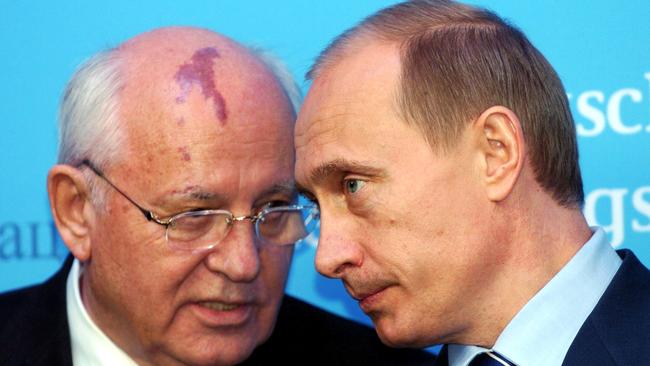
If serious journalism is the first draft of history, the purpose of history as a discipline consists of scholarly attempts to recover and explain what has happened, whether in the recent or distant past. We are being given a lesson in how this is done right now, as the Ukrainian counter-offensive hammers Russia’s forces and Vladimir Putin’s Kremlin faces mutiny and disaffection.
Fortunately, there are, on the world scene, specialists who know the history of Russia, Ukraine and Eastern Europe and can help set the current shocking war in depth of perspective. None of them is better equipped for that task than Harvard University’s Serhii Plokhy.
His newly published study, The Russo-Ukrainian War, as I mentioned in this newspaper several weeks ago, stands out from other books on the subject and merits close attention.
The terrain in which the Russo-Ukrainian war is being fought sits at the heart of what Timothy Snyder, in his 2010 history of the collision between Nazism and Stalinism, called “the bloodlands”. Moreover, bloodletting in those lands goes back millennia before Hitler or Stalin darkened them with the blood of millions. The history of their last thousand years is deeply important; their history in the 20th century even more so. However, the history of their very recent past – the past 30 years – is vital in any effort to comprehend what is going on right now.
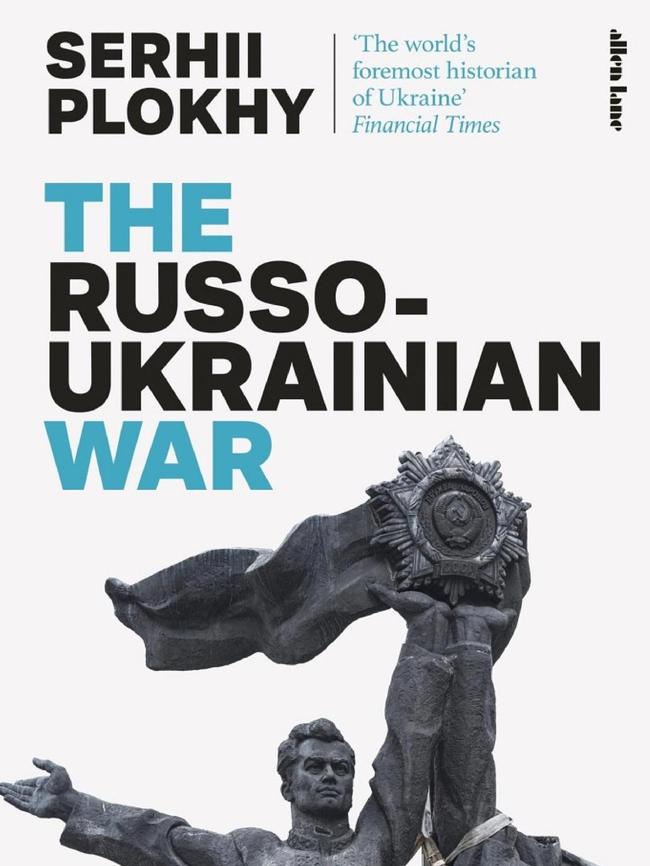
Plokhy provides us with clarity on all three of these time scales. But what makes his account of these things something to be relied upon? Snyder, a distinguished historian, speaks five European languages and reads 10 of them. He says that you really need to understand languages to get inside the histories of foreign countries and use the primary sources in their archives. You also need to have the patience to sift through records and conduct, where possible, interviews with those who have lived through recent historical events.
Plokhy meets all these criteria. He is polylingual, a master scholar and has written a series of acclaimed books about the history of Russia, the Cossacks, Ukraine, the collapse of the Soviet Union, the Chernobyl disaster and the Cuban Missile Crisis.
In fact, he has authored 17 books in these areas in just the past 22 years. He is prolific.
The Russo-Ukrainian War is almost unique in his output, however, because it is current history, written as the war has unfolded and published at a crucial point, where the fortunes of war seem to be tipping in favour of the Ukrainians, but the outcome remains highly uncertain.
For that reason, Plokhy had to assemble and evaluate his materials more quickly than he would otherwise have done, drawing upon his decades of scholarly immersion in the subject to temper his assessments.
Here are five key passages which show his knowledge and insight at work. The first (pages 103-04) is on the roots of Russian territorial claims and shows that it is Russian imperialism, not a nostalgia for the Soviet era as such, which underpins the invasion of Ukraine:
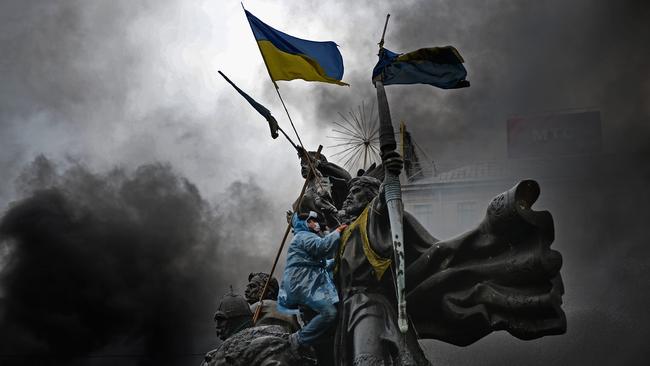
“The idea of a big Russian nation went into the Russian emigration with the White Guard generals defeated by the Bolshevik Red Army … Among the emigres was General Anton Denikin, whose memoirs would make a strong impression on Vladimir Putin … The key figure who linked the imperial thinking of the past with a plan for dealing with post-Soviet Russian challenges and realities was Aleksandr Solzhenitsyn … In his essay Russia in Collapse (1998), Solzhenitsyn argued for the annexation of eastern and southern Ukraine, denouncing its ‘inordinate expansion onto territory that was never Ukraine until Lenin: the two Donets provinces and the whole southern belt of New Russia (Melitopol-Kherson-Odesa) and the Crimea’ … Putin was an admirer of all these writers and shared many of their ideas.”
Yes, Solzhenitsyn of The Gulag Archipelago. Such are the crosscurrents in the case.
Our second excerpt (pp. 94-95) has to do with Putin’s attempts to control Ukraine through Viktor Yanukovych, his client and fellow kleptocrat:
“In November 2013, Yanukovych accepted an invitation to the EU summit in Vilnius, where he was expected to sign the association agreement but abruptly refused to do so. Speaking to his own entourage, he explained the aboutface as the result of an exchange with Putin, who had allegedly told him that he would never allow the European Union or NATO to share a border with Russia. If Yanukovych signed the EU agreement, Putin threatened to occupy the Crimea and a good part of southeastern Ukraine, including the Donbas. Yanukovych, visibly shaken, decided to abandon the association agreement.”
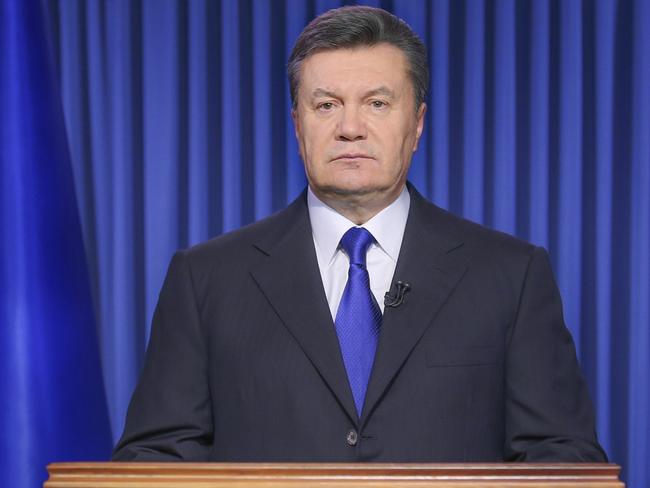
Yanukovych’s retreat from the EU association agreement triggered mass demonstrations in Kyiv, to which he responded with force, at Putin’s urging. Those demonstrations became the Revolution of Dignity between December 1, 2013 and February 22, 2014, in which Ukrainians brought down Yanukovych, repudiated Putin’s attempts at a veto over their national politics and thus triggered his intervention in, and annexation of, Crimea.
This was the background to the election of Volodymyr Zelensky as president of Ukraine, in the northern spring of 2019. From day one, he faced unrelenting pressure from Putin to bow to Moscow and he refused, seeking, like his predecessors, to gain admission for Ukraine to both the EU and NATO. Putin, thwarted in his attempts to engineer hegemony through political chicanery, then turned to preparations for war – “politics by other means”, as Clausewitz famously called it.
The US and British intelligence services were able to follow Putin’s preparations closely from the northern spring of 2021 and gave both Zelensky and the NATO states early warning of what was coming. Our third excerpt (p. 143) comes from this vortex:
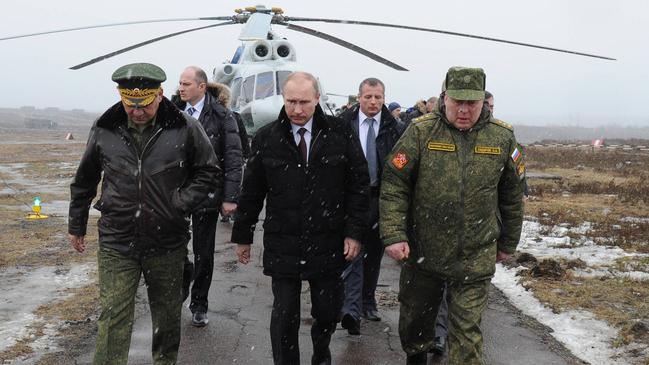
“The White House decided that it could not just sit on the increasing data pointing to such an invasion. In an unprecedented move, possibly risking the disclosure of sources and methods of intelligence gathering, the two governments began to share information with allies to build a coalition that could stop Putin. In early November, CIA director William Burns flew to
Moscow to tell his counterparts that their plans were no longer secret. Putin did not question the American intelligence. Instead, he complained about NATO expansion. In early December, reporting about plans for an invasion involving 175,000 Russian troops appeared in The Washington Post.
“On December 17, 2021 … the Russian authorities presented their Western counterparts with an unexpected ultimatum. The list of demands was rather long and included a commitment in writing from NATO to halt any further expansion of the alliance, remove multinational NATO troops from Poland and the Baltic states, and even withdraw American nuclear weapons from Europe. The most important demand was a formal commitment that Ukraine never be allowed to join the alliance. The context in which these demands were made, especially the concentration of almost 200,000 Russian troops within striking distance of the Ukrainian borders, suggested that if the West did not comply, then Russia would launch a major military offensive against Ukraine.”
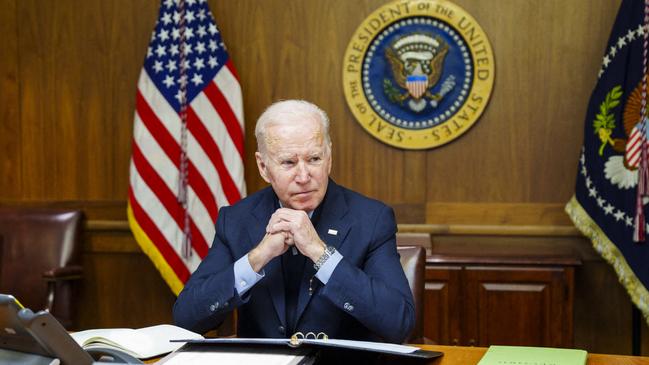
NATO did not comply, of course, and the offensive duly took place in late February 2022.
What US President Joe Biden and his national security team had spent months pondering was how to prevent any such Russian action from spiralling into World War III. Their game plan consisted of four key points:
• Don’t have a direct clash between Russian and US or NATO forces.
• Contain the fighting within the geographical boundaries of Ukraine.
• Strengthen NATO unity and cohesion.
• Empower Ukraine to resist the invasion.
They didn’t expect the Ukrainians to be able to withstand Putin’s invasion for more than a few days. But, of course, it didn’t turn out that way. So much so that a joke arose among Ukrainian soldiers by late 2022: “We used to think the Russian army was the second best in the world. Now we know it’s the second best in Ukraine.”
There had been those in Russia, who foresaw something like what has happened. Our fourth excerpt (p. 149) is about one such figure, who opposed the war, foreseeing its consequences:
“Putin would repeat his mantra about the Russians and Ukrainians being one and the same people again and again … But there were also those in the Russian nationalist camp who did not believe that the war between the Russians and Ukrainians was a good idea. The head of the All-Russian Officer Assembly, Colonel General Leonid Ivashov, published an open letter to Putin opposing the war on grounds of Russian national interest and Slavic unity.
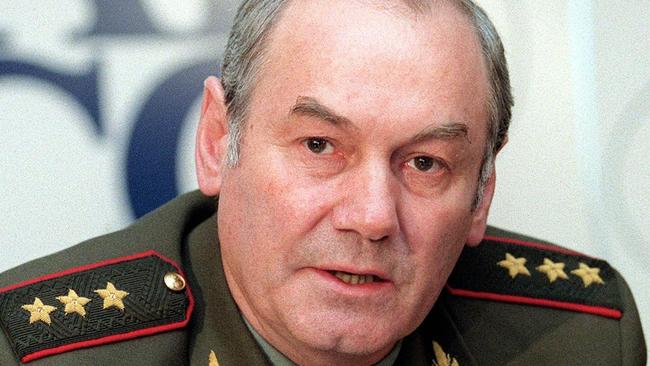
“‘The use of military force against Ukraine will, in the first place, put into question the existence of Russia itself as a state’, wrote Ivashov. ‘Secondly, it will make Russians and Ukrainians mortal enemies forever. Thirdly, thousands (tens of thousands) of healthy young men will perish on both sides, and that will unquestionably affect the future demographic situation in our countries, which are dying out.’”
Ivashov, a former president of the Academy for Geopolitical Problems, did not mince his words, denouncing what he called Putin’s “criminal policy of provoking a war” and calling for Putin’s resignation.
In fact, Ivashov openly condemned Putin’s style of government as the real problem for Russia, not NATO or the West.
It was, he wrote, “the unviability of the state model, the complete incapacity and lack of professionalism of the system of power and administration, the passivity and disorganisation of society” that posed the real and present danger to Russia’s future.
This brings us to our fifth excerpt (p. 294), which is lifted from Plokhy’s Afterword, in which he attempts to forecast, in early 2023, how the war will transform the bloodlands and open the way for a new future for both Ukraine and Russia:
“There are clear indications that the Ukrainian nation will emerge from this war more united and certain of its identity than at any other point in its modern history.
“Moreover, Ukraine’s successful resistance to Russian aggression is destined to promote Russia’s own nation-building project. Russia and its elites now have little choice but to reimagine their country’s identity by parting ways not only with the imperialism of the tsarist past but also with the anachronistic model of a Russian nation consisting of Russians, Ukrainians and Belarusians.
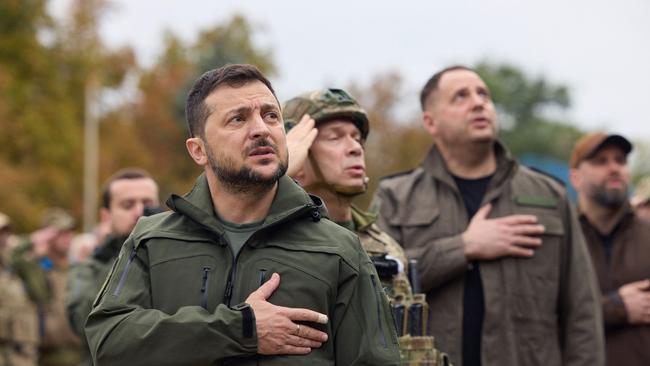
“By paying an enormous price in wealth and the blood of its citizens, Ukraine is terminating the era of Russian dominance in a good part of eastern Europe and challenging Moscow’s claim to primacy in the rest of the post-Soviet space.”
This judgment may be overly sanguine, even as the Ukrainian counter-offensive grinds away at the Russian war machine in the northern summer of 2023. Yet we need to think boldly of how to transform the geopolitical situation that has given rise to Russia’s post-Soviet brutalism and neo-imperialism.
For that to happen, the war needs to be brought to a conclusion that opens up the possibility of such a transformation – as World War II did in both Europe and Asia. Political change in Russia consistent with what dissenting figures such as Ivashov have long been calling for is badly needed, but problematic. The NATO powers must find a way to encourage in Russia a dignified and constructive turn away from the form of government and nationalism that have generated the wars against Chechnya, Georgia and Ukraine.
That is a tall order at this point and there are many potential pitfalls ahead in attempting to bring about such a visionary settlement. Moreover, the reconstruction of Ukraine will have to take precedence. Plokhy’s history, however, is a salutary place to start. He cuts through many of the more pernicious memes that have plagued global debate about Putin’s Russia, its neo-authoritarianism and its acts of aggression.
He also explains Ukrainian nationalism with the clarity and gravitas needed to inform statecraft in a now revitalised NATO.
What was fumbled badly in the 1990s must now be put on a new footing and a serious effort made to bring Russia into what Mikhail Gorbachev, almost 40 years ago, envisioned as a common European home. Thus would the Great War finally end.
Paul Monk is a former senior intelligence analyst and author of a dozen books, including The West in a Nutshell: Foundations, Fragilities, Futures (2009) and Dictators and Dangerous Ideas (2018). He has now been officially sanctioned by the Putin regime.


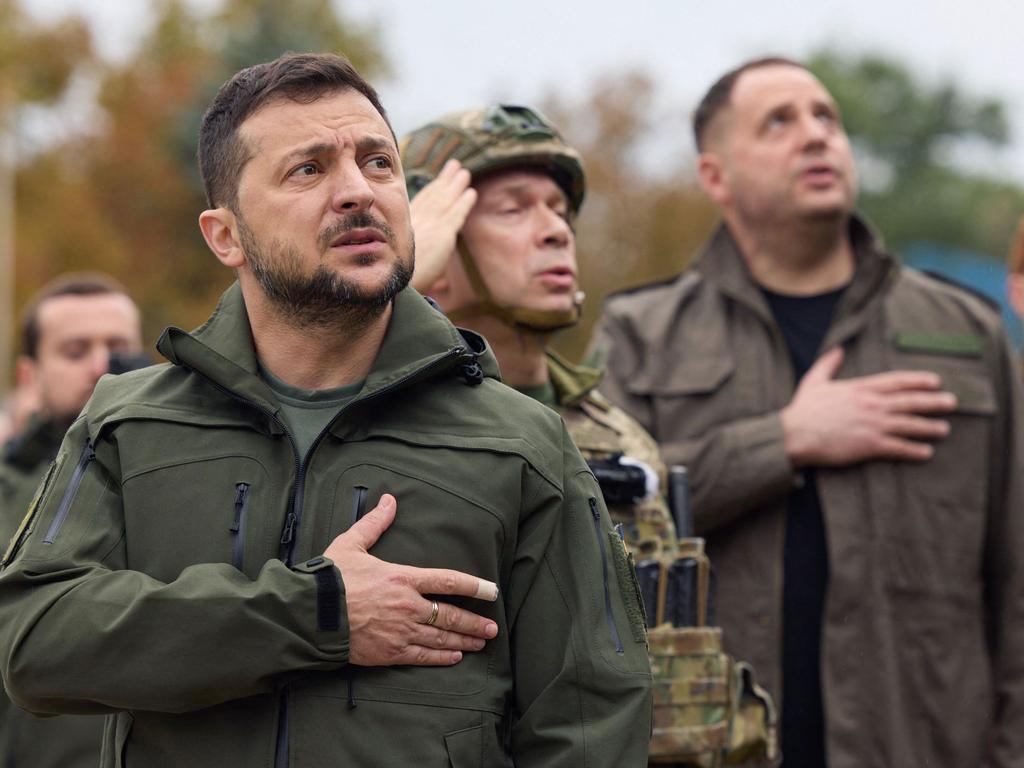
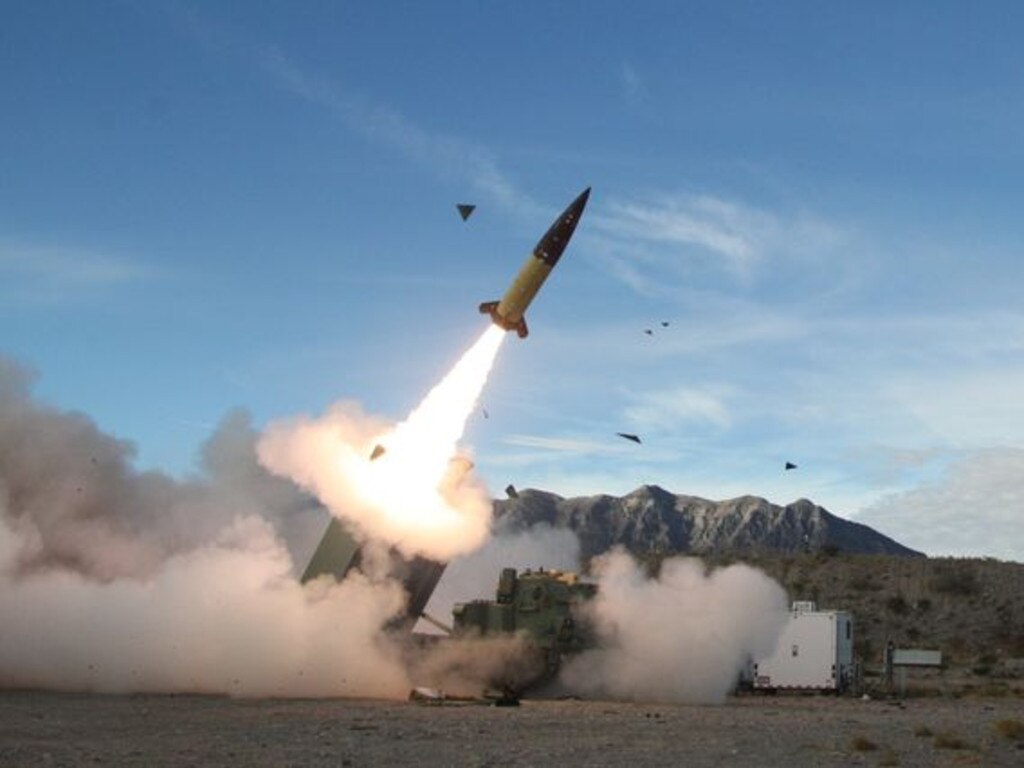
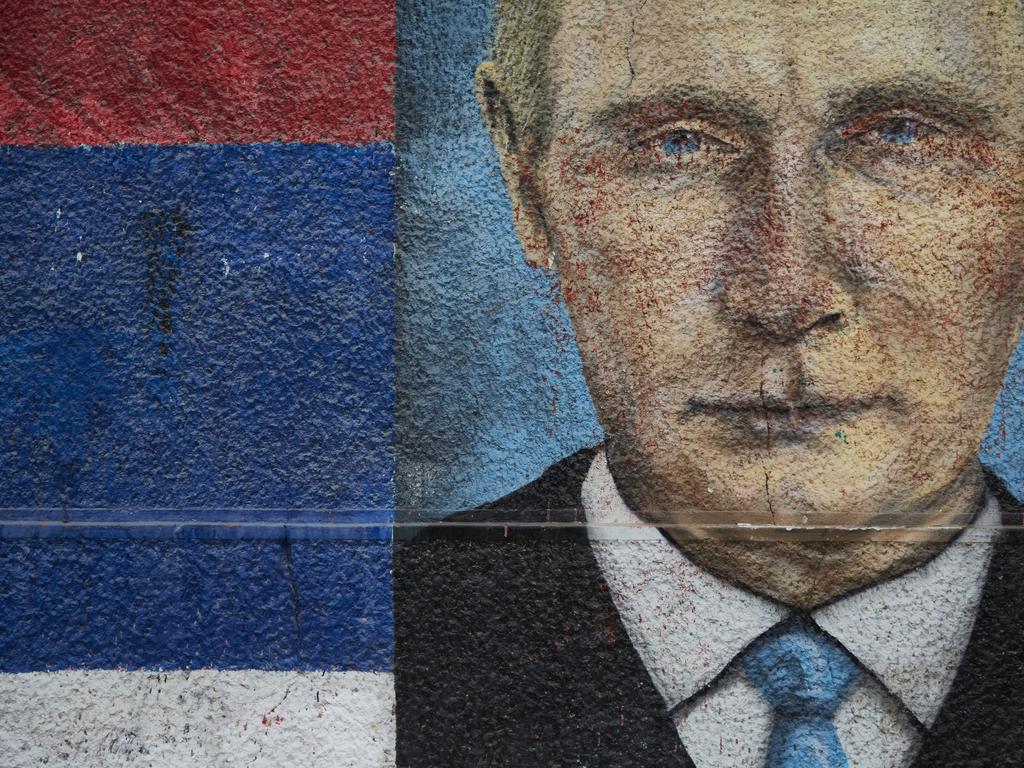


To join the conversation, please log in. Don't have an account? Register
Join the conversation, you are commenting as Logout